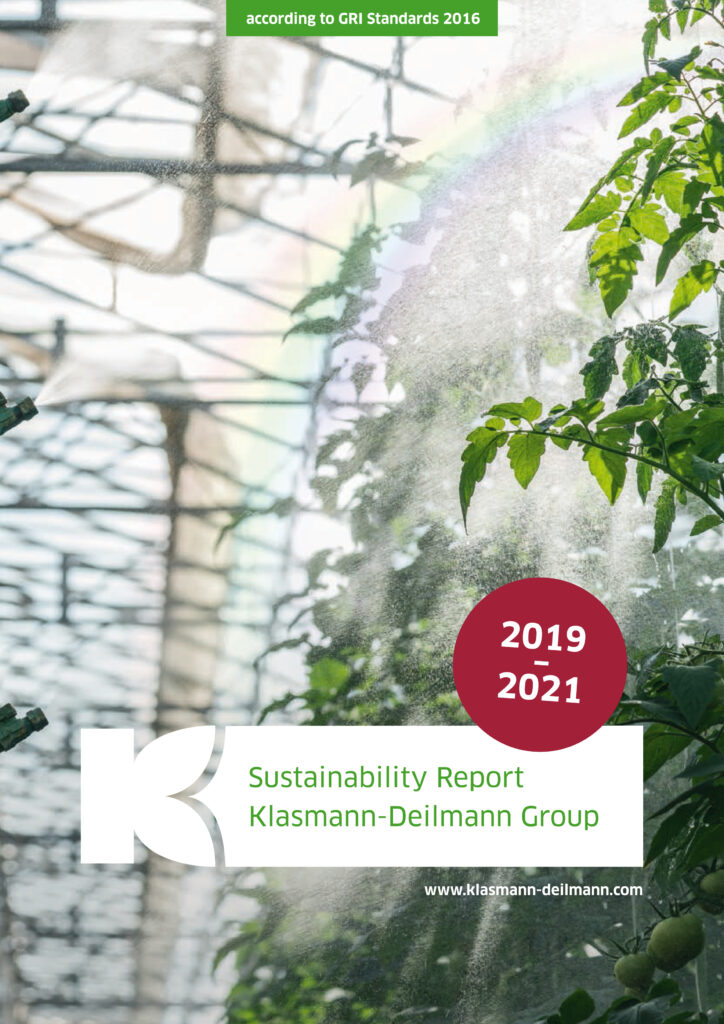Ten per cent fewer emissions
Klasmann-Deilmann publishes Sustainability Report 2019-2021
The Klasmann-Deilmann Group is bringing out its eighth Sustainability Report. As before, this publication presents all of the company’s major activities in a sustainable-development context. A key finding was that Klasmann-Deilmann reduced its own emissions by 10 per cent within two years. At the same time, the Group increased the proportion of alternative raw materials in its substrate production to 15 per cent. The Sustainability Report for 2019-2021 complies with GRI Standards 2016, and the carbon footprint was verified by audit provider SGS Institut Fresenius.
Business growth had led to an increase in overall emissions at Klasmann-Deilmann over the previous few years. “However, during the same period we consistently lowered our product carbon footprint,” explains Managing Director Moritz Böcking. “This resulted in a positive impact on our corporate carbon footprint as well: over the past two years we have reduced our emissions by 10 per cent. At product level, these emissions savings are far greater even than this for many individual substrate blends.”
These successes are due mainly to the growing proportion of alternative raw materials – and, in particular, renewable resources – which Klasmann-Deilmann increased to around 600,000 m³ (i.e. 15 per cent of its total production) by the end of 2020. The aim is to accelerate this trend and raise the share of alternative raw materials to 30 per cent overall (as a proportion of volume) by 2025. To pave the way for this, the company has entered into new partnerships in the raw-materials sector and acquired leading suppliers both in Germany and worldwide. “Securing our resource base remains one of the major challenges,” says Böcking, “since wood fibre, green compost, coir and perlite are also highly sought-after by other industries and their availability is finite. Nevertheless, we are committed to rapidly achieving further advances as we progress down this road. As soon as 2023, we will no longer be offering purely peat-based growing media.”
In the year 2020, Klasmann-Deilmann supplied 44 per cent (by volume) of its total production to food sector growers. “We make a significant contribution to the reliable supply of healthy food to the population,” emphasizes Managing Director Bernd Wehming. “This makes growing media part of the critical infrastructure.” Policymaker assessments based only on what products contain and their climate impact are, therefore, too short-sighted. Substrates’ uniqueness with regard to reliability in commercial crop production, and their efficiency, represents an asset that benefits society as a whole. “For the food sector and afforestation projects, growing media remain essential,” Wehming affirms. “And, in ornamental and tree nursery crops, they are a vital factor enabling oases of green space to be created in our cities and gardens.”
